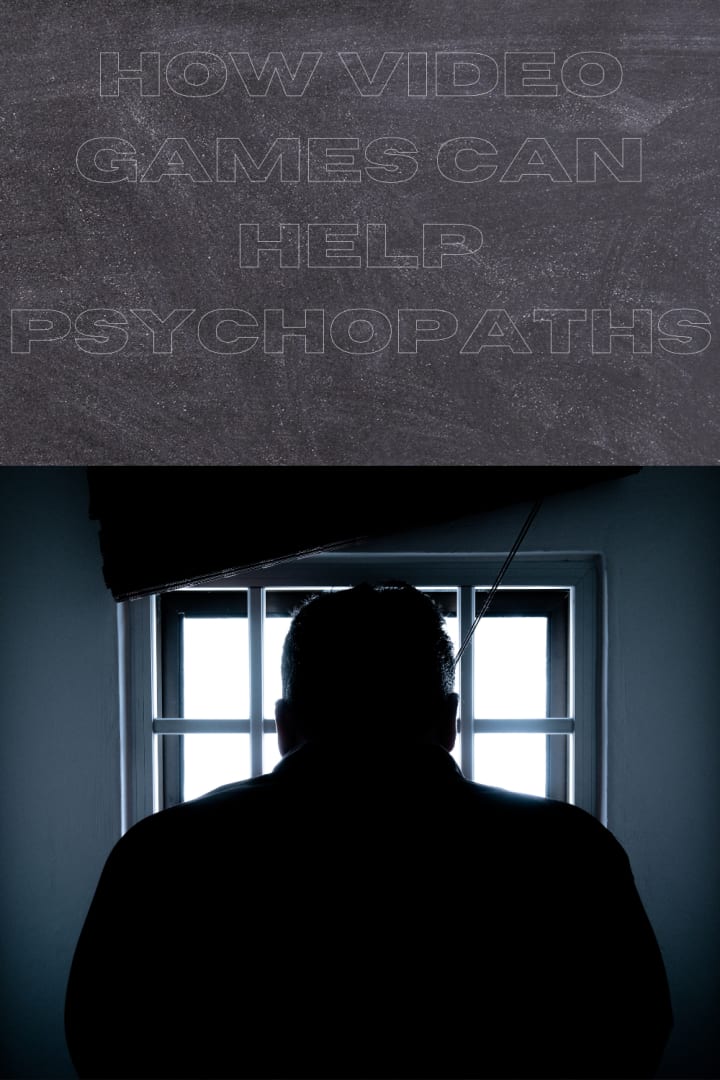Video Games Can Help Psychopaths
How Scientists Found Video Games might be the Key to Integrating them into Society.

A figure in orange shuffles into a room. His gate is abnormally shortened by the shackles the prison guards put on him. The room contains battered cheap furniture and an old American flag that lost its snap long ago. He seats himself at a table where someone managed to carve the initials DD into the scratched and worn surface. His chair faces three officials.
These people will decide his fate.
All three look utterly uninterested in the fate of the man before them.
Violent offenders like him are a dime a dozen to parole officials. This man probably won't be released. His crimes and his diagnosis of Anti-Social Personality Disorder, the clinical diagnosis for psychopathy, means that the likelihood of him getting to leave prison is slim. Since he's a violent criminal most people wouldn't want him released. Especially since the chances of him hurting more people and returning to prison are so high.
64% of violent criminals end up back in prison within 8 years of being released in the United States. Many countries have better figures, but even the countries with the best rates have close to a third of offenders returning to prison. Denmark which is famous for its low rates of recidivism and progressive prisons still has a rate of 29%. Figuring out a way to safely release men like the one above can dramatically reduce the rates of recidivism reducing prison costs and the amount of overall crime a country faces.
Focusing on mentally ill prisoners may be a way to accomplish this. There is a strong link between personality disorders and committing violent crimes. Studies have shown that as many as 87% of offenders have personality disorders. Reducing repeat crimes in people struggling with mental illnesses would be a major step toward reducing overall recidivism in criminal offenders.
Curing a personality disorder is a complex and resource-heavy proposition. When it's even possible. Psychologists have been taking a more targeted approach in dealing with the cognitive deficits that lead many people with mental disorders to commit violent crimes. . While curing a personality disorder can take years of therapy, targeting the cognitive deficits that lead to criminal activity is a much more realistic method for prisons to reduce recidivism.
A Yale psychologist named Baskin-Sommers recently did a study targeting those cognitive deficits with prisoners that have been diagnosed with ASPD. Using a computer game, she managed to target the traits that cause people with ASPD to re-offend.
There are two subtypes of people with ASPD that she chose to study. Those with externalizing and internalizing traits. Hannibal Lector would be a good example of internalizing traits with his calm, cool, murderous demeanor. While a gang leader going to extreme lengths for vengeance and a tendency to get violent and angry would be more of an externalizing psychopath.
When the computer game was targeted at the correct type of ASPD there was a clear reduction in the cognitive deficits that lead to crime. While test subjects showed little to no reduction in traits when paired with the wrong video game for their cognitive deficits. Video games may not be the magic bullet that stops all crime, but increasingly scientists are finding ways to use new technology to accomplish things that were once deemed impossible. Including reducing crime.
Making sure criminals don't re-offend is not just for the criminal. It reduces overall crime rates and saves money. It costs California an average of 81,000 per year to house each inmate so any reduction in inmates is a significant reduction in cost. So while some people may view this as people that commit crimes getting more help than most people we all benefit from a reduction in crime.








Comments
There are no comments for this story
Be the first to respond and start the conversation.